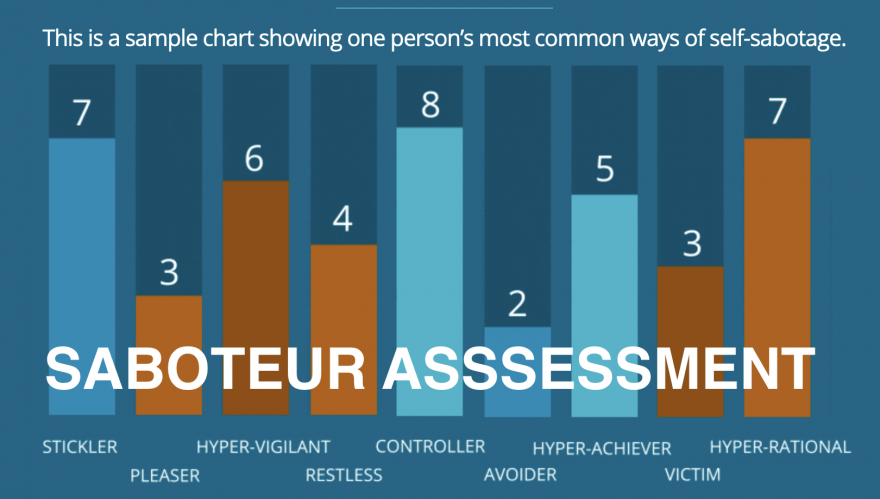|

“Let us all be the leaders we wish we had.”
~ Simon Sinek, Author and inspirational speaker.
22nd July 2021
Hello!
Recently, I was reminded how fun it can be to work as part of a team, collaborating to get a project done on time and producing a high quality outcome. Working predominately as a solopreneur can be lonely, so it’s good to get back into a group environment. It’s particularly fun when everyone pulls their weight, helps each other, and enjoys each other’s company. Work is not a four-letter word in these instances.
I can remember two occasions however when a rogue colleague disrupted a team I was leading. In one instance, the toxic person, hired by my boss to join the team (even though members of my team had advised against it, including me), led to the destruction of the team in a fairly quick manner. In the other, I was able to get rid of the rogue person in time to save the team. But it took one of my star teammates to threaten to quit before my boss recognized the potential collapse of the team and allowed me to let the person go.
No matter your technical skills and expertise, if you do not have “people” skills, you will be challenged when it comes to working in teams.
Below are some tips on how to deal with difficult coworkers. I hope you don’t need them, but sooner or later, it’s likely you will! With these in your toolbox, you increase the likelihood of being a great leader!
Taking the LEAP with you!


There’s one in every workplace!
He’s the colleague who is always late to work and never meets a deadline. He’s always apologetic and ready with an excuse and promises this is really the last time he’ll ask for a favor. You’ve been nice, even covering up for him, but now you’re sick of it.
Or it might be the coworker who takes credit for work you did, steals your ideas and talks about you to others. A master of double-talk and double-dealing, she’ll deny everything and try to convince you—and others—that you’re the crazy one. You’re so angry and obsessed with her behavior, sometimes you wonder if you are going crazy.
Until recently, focus has been on how to manage the difficult boss or managing employees. The issue of problem coworkers has received less attention, yet in one study, 80% of people reported a single coworker contributed significant stress to their workday.
This stress isn’t just dangerous to employees; it has a negative impact on the entire company or workplace. It can lead to poor work performance, absenteeism and health problems. Sometimes outstanding employees who see no solution to a toxic coworker look for a new job. In today’s competitive work environment where finding and retaining talented people is increasingly difficult, this is a loss few companies can afford.
Complaining to management about a problem coworker is often ineffective and can backfire, making you look like the problem. But, there are some effective steps you can take to deal with this common workplace challenge. Remember, if you believe you have some control, you do.
Look to Yourself First
Are you the problem? Do you listen without interrupting? Do you take everything personally? Are you willing to change? Are you empathetic? Are you curious about what is happening in this person’s life to understand them better? Taking responsibility for your part will make it much clearer how to proceed with a problem peer.
As Michael Jackson once sang, “If you want to change the world, take a look at yourself first”!
Make Sure This Isn’t About Personality or Office Politics
Gender, race, culture and religion affect behavior in the workplace. In her book Problem People at Work, management consultant Marilyn Wheeler outlines some common ways men and women are different at work, and advise neither is better than the other. For example, numerous studies on work and gender show men tend to value results over process, while women often value the process as much as the results.
What may be offensive to you may be normal to someone of another race or culture. Understanding critical gender, racial and cultural issues can put the problem in perspective. For example, in the US it is considered normal to look your boss in the eye, while in some parts of Africa, it may be considered a challenge to their authority. In Thailand, it is considered offensive to put your feet up on your desk, while in North America, it’s a sign of relaxation or of having a casual conversation.
Classify the Problem Objectively
Measuring the problem helps make it less threatening. Not every problem colleague is the same. One approach is to identify if this situation falls into one of three categories: difficult, challenging or toxic. Knowing this will help you take the right steps.
Difficult
This is a situation that can usually be solved by a single action. For example, your coworker loves to schmooze and interrupts your workflow with comments, personal problems or requests for help. A one-on-one friendly conversation in which you gently explain the problem usually helps. Offering to go to lunch together or setting a scheduled time to talk will help avoid turning a pest into an enemy. Avoid use of words such as, “always”, “never” or any thing else that implies judgment and blame.
Challenging
This is a situation requiring more work on an ongoing basis. Take the coworker who turns every situation into a competition and can’t seem to grasp the concept of teamwork. In her book Working with Difficult People, communications consultant Muriel Solomon strongly suggests taking control immediately when a coworker is deceitful, manipulative or exploitive. Stay calm, be firm and up-front. Refuse to be drawn in, but state how you see the problem as clearly and courteously as possible. Understand this behavior has insecurity and fear at the root, therefore puncture this person’s influence, not his pride. Like medicine for a patient, you may have to repeat this several times as needed.
Toxic
Like some chemicals in the workplace, some coworkers may be truly harmful to your health. In fact, these people are like “a hidden cancer” in the workplace, according to psychologists Alan A. Cavaiola and Neil J. Lavender. In their book Toxic Coworkers: How to Deal with Dysfunctional People on the Job, they list a range of personality disorders that, when taken to extreme, can tear a workplace apart.
Examples are the coworker at the center—and usually the cause—of every office blow-up. Histrionic and explosive, this person can’t get control of his temper or emotions, and the workplace is in constant turmoil. Or it might be more hidden, like the colleague who can sniff out and exploit every one of her coworkers’ weaknesses. She’s the boss’ pet and the office poison.
Because people with true personality disorders actually view their symptoms as strengths, it’s hard to confront them. In some cases, the best solution is to avoid this person as much as possible, keeping all interactions matter-of-fact and brief. If the situation is truly harmful, it’s advisable to document examples. This may be a situation where talking to a manager is your best recourse.
Many years ago, I had to fire a “star” employee because he became toxic to the point he was continually belittling the support staff. It wasn’t fun or easy, but it was necessary to save the whole team. Each of our staff was an integral part of the company in making it run smoothly.
In all of the above situations, getting your own emotions and thoughts in order is an essential step in dealing with difficult co-workers. This is why I highly recommend using the skills taught in my Charge Your Attitude program incorporating Positive Intelligence® training.
When you look at all challenges as gifts and learn to consistently move from your “monkey brain – fight or flight” brain to your “creative” brain, you become consistently happier and find stressful situations to be not so stressful. You learn how to increase your levels of empathy, curiosity and navigation powers - all top traits of courageous leaders!
Our jobs and careers are an integral part of who we are. Dealing effectively with problem coworkers can help keep our work lives successful and satisfying.
Challenge...
Are you ready to become a better leader? As mentioned above, we need to look inward first to see how our behavior and emotions fit into the situation.

You can do this by taking the Saboteur Assessment here.
Discover how your saboteurs impact your ability to achieve high performance and interact with others at the office (and at home!). The challenge also involves becoming curious to find out even more about what your results mean by booking a time with me to discuss them! Are you daring enough?
RESOURCES and more...

I’m currently reading this wonderful book full of research findings and tips on how to be a courageous leader. Brené reminds us that, “When we dare to lead, we don’t pretend to have the right answers; we stay curious and ask the right questions.”
I love this book as it shares that the heart is just as important as the mind in being a good leader and team member. I hope you enjoy it as much as I do.

FREE GIFT
If you know it's time for a change in a specific area of your life, but you aren't sure how to make it happen, this is for you - Courage, Risks and Reward: Taking a Chance to Change Your Life - a 5-part Coaching Program compliments of The LEAP Network! Click here to download the program.
Let's connect...
Join me in a one-hour complimentary strategy session to help determine how you can move forward in getting unstuck, and gain momentum to move in the right direction for you. During our session, we will go over one or two exercises and determine the one next step you can take on your own after the call to keep the momentum going. Click here to schedule your session
SOCIAL MEDIA
   
 Renée Blasky is the Founder and CEO of The LEAP Network Ltd. Renée Blasky is the Founder and CEO of The LEAP Network Ltd.
Renée discovered her business and mindset coaching super powers when she was approached by a woman looking for assistance in developing a business opportunity. She hasn’t looked back since. Coaching women fits with her passion to empower women so they live a fulfilled life and make choices from a foundation of personal power, financial freedom and a deep sense of accomplishment.
Through her own experiences, as well as coaching women entrepreneurs and women in finance, Renée understands women often undermine their confidence and self-esteem. Consequently, they jeopardize their success paths, and mental fitness. As mindset accounts for an estimated 80% of success and happiness, Renée helps her clients to understand the lies they are telling themselves, how they are sabotaging their performance, wellness and relationships and helps them to establish a new journey to thrive utilizing their superpowers.
Renée helps her clients find clarity, regain their passion, set stick-worthy goals, stay focused, create the right mindset, and be accountable. She also gently pushes her clients outside of their comfort zones and helps them face their fears so they can achieve their dreams. Renée works with her clients through various online courses, webinars, one-on-one coaching, and group coaching programs.
Renée, who trained as a life coach with Tony Robbins and Cloé Madanes, is also a certified trainer for Marci Shimoff's Happy for No Reason and Susan Jeffer's Feel the Fear and Do It Anyway courses based on their respective books of the same name. She is also in the process of getting certified in the Positive Intelligence® program to increase her client’s mental fitness.
Renée is aptly qualified to coach women entrepreneurs and women in investments having founded two of her own businesses; investment management consulting services and business coaching. She is passionate about equality, diversity and inclusion and loves multi-cultural environments, having lived abroad for 35 years with assignments in 13 countries. She obtained her Chartered Financial Analyst (CFA) Charter in 1990, and has over 30 years of experience in the investment/finance industry. She is listed in Marquis Who’s Who in the World and Who’s Who in Finance. She has also received various awards and recognition in the investment industry through her work with the CFA Institute and the development of capital markets in East Africa.
Learn more about Renée and The LEAP Network by visiting her website here: www.theleapnetwork.coachesconsole.com.
You can also send an email directly to Renée at rkblasky@theleapnetwork.co (not “.com”)
|